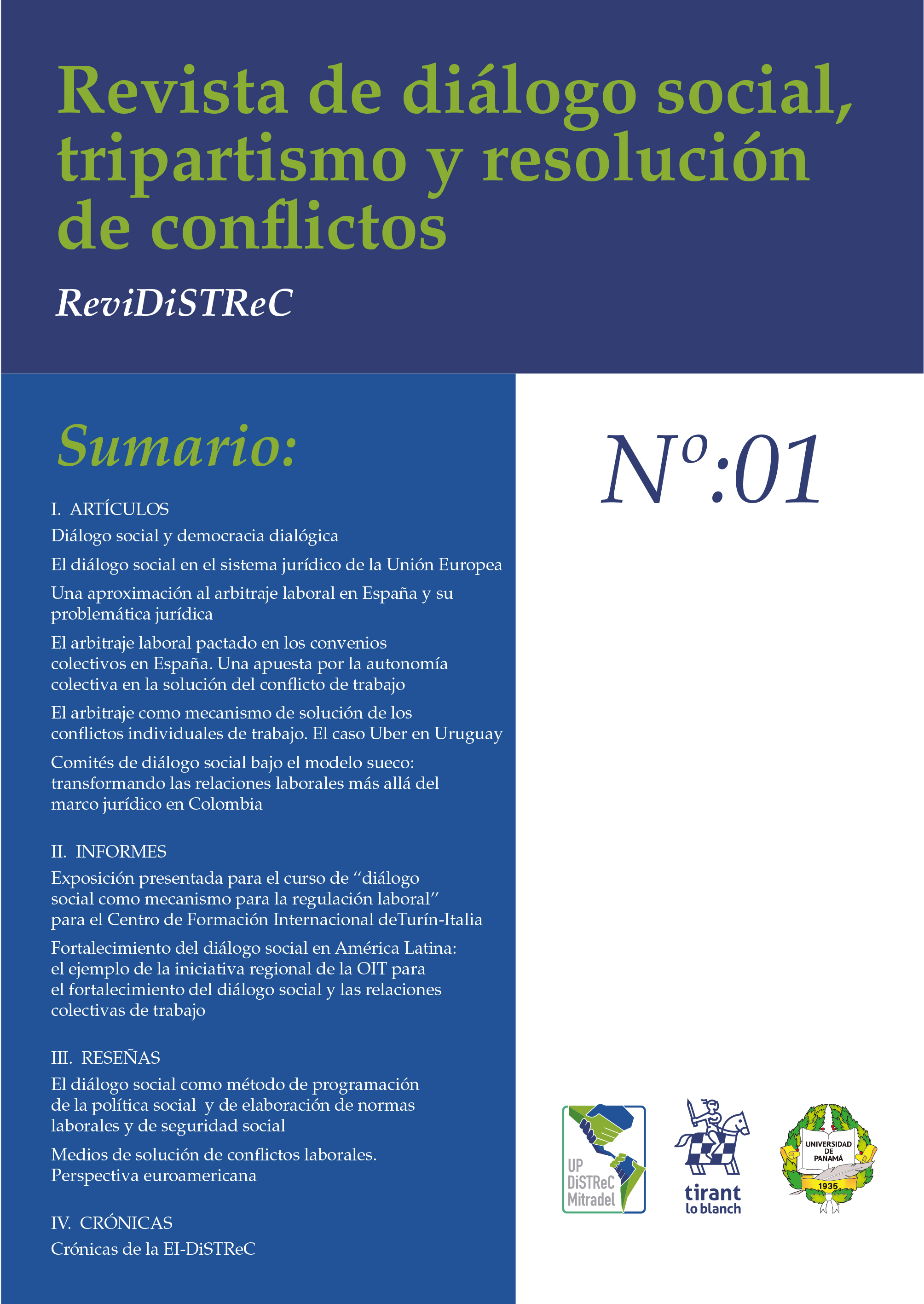Published 2025-07-09
Keywords
- social dialogue,
- collective bargaining,
- social rights,
- representativeness social partners
How to Cite
Abstract
The study first describes the legal framework and the various levels of social dialogue in the EU, culminating in recent years with the integration of these practices into the European Semester, which has been strengthened by the adoption of the European Pillar of Social Rights. The second part examines social dialogue as an instrument for the development of the social law UE and as a regulatory instrument through collective bargaining (Articles 154 and 155 TFEU). This framework recognizes the power of social partners to conduct negotiations for the approval of collective agreements. The study highlights the problems of the legal effectiveness of these “autonomous” agreements, as well as the flexibility of this source of legal production. The study also examines the singularity of the effectiveness of these agreements through a Council “decision”. The rules governing the representativeness of social partners as an integrating element of social dialogue are analyzed. Finally, it is concluded that, with the nuances one may wish, it is a fact that collective bargaining has become part of the sources of EU law and has contributed to the development of derived social law in recent decades. Keywords: social dialogue, collective bargaining, social rights, representativeness social partners.
Downloads
References
- Cruz Villalón,” La funcionalidad de la negociación colectiva como instrumento de gestión del cambio”, en Cruz y Rodríguez Ramos (Dirs.), La negociación colectiva como instrumento de gestión del cambio social, tecnológico, ecológico y empresarial, Aranzadi, 2025. Lahera Forteza, Manual de negociación colectiva, Tecnos, 2022.
- Dumortier, Loiseau, Lokiec y Pécaut-Rovolier, Droit de la négociation collective, Lefebvre-Dalloz, 2024. Un acercamiento más detallado sobre la negociación colectiva sectorial en la UE en García-Muñoz, M.A., La regulación colectiva europea de sector, Ed. Bomarzo, 2017.
- Durán López, “Las necesidades organizativas y productivas de las empresas y las respuestas del ordenamiento jurídico…,” Instituto de Estudios Económicos, 2025.
- Giraud y Pélisse, Le dialogue social sous contrôle, PUF, 2024, en particular, como síntesis.
- Lefebvre, “Les transformations de l’Europe sociale par l’Union économique et monétaire », Droit Social, nº 10, octubre 2024.
- Lyon-Caen, “Le rôle des partenaires socieux dans la mise en ouvre du droit communitaire » en Droit Social, 1, 1997.
- Magnani, Diritto sindacale europeo e comparato, Giappichelli Ed., 2020, 3ª ed.
- Pecinovsky, “The role of the social partners in the European Semester: key stakeholders or mere theory?”, Diritti Lavori Mercati International, 2024, nº 2..
- Roccella, Treu, Aimo, Izzi, Diritto del Lavoro dell’Unione Europea, Cedam, 2023, 9ª ed.
- Sentencias y entre otros
- Decisión 2003/174/CE del Consejo, revisada con la Decisión (UE) 2016/1859 del Consejo de 13 de octubre de 2016.
- Decisión de la Comisión de 20 de mayo de 1998 relativa a la creación de Comités de diálogo sectorial para promover el diálogo entre los interlocutores sociales a escala europea.
- Decisión (UE) 2022/2296 del Consejo, de 21 de noviembre de 2022, relativa a las orientaciones para las políticas de empleo de los Estados miembros.
- Directiva 96/34/CE del Consejo, de 3 de junio de 1996, relativa al Acuerdo marco sobre el permiso parental celebrado por la UNICE, el CEEP y la CES.
- Directiva 97/81/CE del Consejo, de 15 de diciembre de 1997, relativa al Acuerdo marco sobre el trabajo a tiempo parcial concluido por la UNICE, el CEEP y la CES.
- Directiva 1999/70/CE del Consejo, de 28 de junio de 1999, relativa al Acuerdo marco de la CES, la UNICE y el CEEP sobre el trabajo de duración determinada.
- Recomendación del Consejo de 12 de junio de 2023, sobre el refuerzo del diálogo social en la Unión Europea (DOUE-Z-2023-70056).
- STJUE 20-12-2017, asunto C-158/16, caso “Vega González / Consejería Hacienda Principado de Asturias”.
- Ficha Temática sobre la UE (2024) sobre el Diálogo Social del Parlamento Europeo: https://www.europarl.europa.eu/factsheets/es/sheet/58/el-dialogo-social

